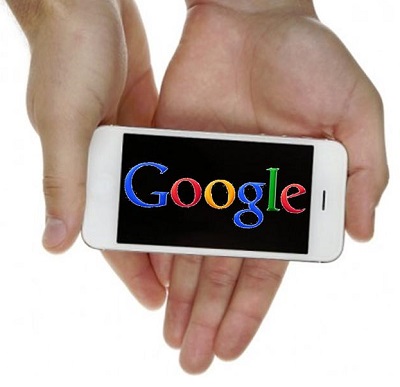As the search engine giant places a growing focus on smartphone and tablet based users, it has also concentrated on mobile marketing.
Now that mobilegeddon is upon us and Google has placed a far more concentrated focus on searches conducted over smartphones and tablets, it has now updated its algorithms to give a boost to mobile AdWords, as well.
This shift in AdWords focus has been made in order to align with the current trends in the marketplace.
Google has now spotted tremendous opportunity in mobile AdWords as marketers are making an increasing attempt to be able to connect with people by way of mobile marketing techniques. The goal is to make contact with people throughout various different vital points along the route to making a purchase. This helps to explain why the latest innovations in AdWords have had a great deal to do with being able to score that moment by way of automation and to be able to measure each one.
Google made a live streamed presentation with regards to the changes that have been made for mobile AdWords.
 The live stream was hosted by the vice president of product management at AdWords, Jack Dischler. There, he explained to an audience of an estimated 20,000 people, that mobile technology is always at the very top of the marketing mind. He described the way that ads can help to win over consumers at those vital moments along the path to purchase, through a process of contacting them at the right time, in the right way, through automation that will allow it to happen at scale, and then to be able to generate usable metrics about that moment for continual improvement of the experience.
The live stream was hosted by the vice president of product management at AdWords, Jack Dischler. There, he explained to an audience of an estimated 20,000 people, that mobile technology is always at the very top of the marketing mind. He described the way that ads can help to win over consumers at those vital moments along the path to purchase, through a process of contacting them at the right time, in the right way, through automation that will allow it to happen at scale, and then to be able to generate usable metrics about that moment for continual improvement of the experience.
He stated that “Consumers, particularly on mobile devices, now have higher expectations than ever before — they want everything right, and they want everything right away.” Dischler also added that this helps to explain Google’s investment into mobile marketing and search, as it is driven by the expectations of the consumer “for immediacy and relevance in the moment.”
Google has developed three new mobile AdWords experiences for some of the industries that are currently considered to be the hottest: hotels, mortgages, and auto.
The acquisition has now been officially announced, saying that one shareholder will make it “faster”.
O2 has now released an official confirmation of its acquisition of the Weve mobile marketing venture that it had previously shared jointly with two other primary participants: Vodafone and EE.
The upcoming buyout of O2 is believed to have put somewhat of a rush on this acquisition.
O2 is preparing to be bought out by Hutchison Whampoa, and in this acquisition, it will be taking on the rest of the Weve deal, allowing Vodafone and EE to step out of the previous partnership. Weve will soon be proceeding forward exclusively as a subsidiary of O2. The mobile operator is going to keep up its ability for leveraging its customer data in order to provide the legs for the platform. Moreover, it will be adding another 20 million opt-ins for the platform, which will be gleaned from the 6 million Priority customers and 14 million O2 WiFi customers.
This will make it possible for the platform to be able to provide highly targeted mobile marketing.
 The initial launch of Weve as a mobile advertising and wallet joint venture among the three giants occurred near the end of 2014. At that time, it was already boasting a massive customer database of a combined 20 million people. That was built upon the databases of all three of the partners in the project. Together, the three held a share of 80 percent market share. It wasn’t long before the mobile wallet component of the business was dropped and they proceeded with the marketing element.
The initial launch of Weve as a mobile advertising and wallet joint venture among the three giants occurred near the end of 2014. At that time, it was already boasting a massive customer database of a combined 20 million people. That was built upon the databases of all three of the partners in the project. Together, the three held a share of 80 percent market share. It wasn’t long before the mobile wallet component of the business was dropped and they proceeded with the marketing element.
According to Weve, this latest move represents a “strategic re-evaluation” of itself, and as the three partners break away and it continues under O2, it will provide the company with the flexibility that it requires to move ahead at a pace that reflects the current market.
Digital director of O2, David Plumb, explained that Weve has been successful through its focus on mobile advertising. Since 2014, it has witnessed a year over year growth of an estimated 45 percent. He added that there is still a great deal more room for growth, as “The UK mobile digital advertising market is big, growing by almost 100 per cent year on year to £850m in 2014.”
 The live stream was hosted by the vice president of product management at AdWords, Jack Dischler. There, he explained to an audience of an estimated 20,000 people, that mobile technology is always at the very top of the marketing mind. He described the way that ads can help to win over consumers at those vital moments along the path to purchase, through a process of contacting them at the right time, in the right way, through automation that will allow it to happen at scale, and then to be able to generate usable metrics about that moment for continual improvement of the experience.
The live stream was hosted by the vice president of product management at AdWords, Jack Dischler. There, he explained to an audience of an estimated 20,000 people, that mobile technology is always at the very top of the marketing mind. He described the way that ads can help to win over consumers at those vital moments along the path to purchase, through a process of contacting them at the right time, in the right way, through automation that will allow it to happen at scale, and then to be able to generate usable metrics about that moment for continual improvement of the experience.
 The initial launch of Weve as a mobile advertising and wallet joint venture among the three giants occurred near the end of 2014. At that time, it was already boasting a massive customer database of a combined 20 million people. That was built upon the databases of all three of the partners in the project. Together, the three held a share of 80 percent market share. It wasn’t long before the
The initial launch of Weve as a mobile advertising and wallet joint venture among the three giants occurred near the end of 2014. At that time, it was already boasting a massive customer database of a combined 20 million people. That was built upon the databases of all three of the partners in the project. Together, the three held a share of 80 percent market share. It wasn’t long before the 